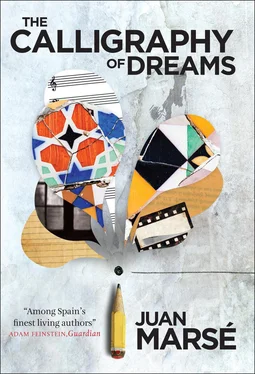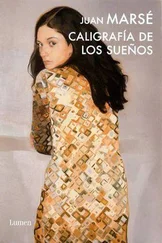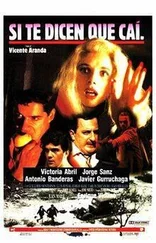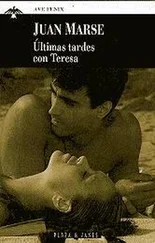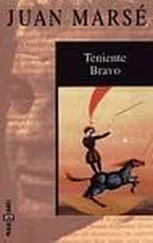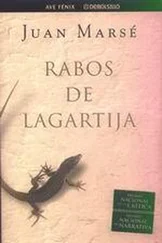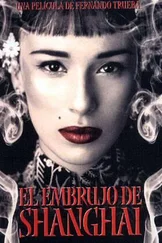“What are you talking about?” His mother laughs heartily, but with her back to him. “That’s a good one! What weird ideas you get, Son!”
She’s not in bed yet, although she is in her nightdress. She is in the bedroom, sorting out the wardrobe.
“I saw what was in the bag, Mother …”
“You did? It’s all for a charity.”
“… and the whole flat smelled of roast coffee, the sort Father brings home.”
“So what? It’s not the first time I’ve given Victoria a bit of coffee. What’s so strange about that?” She closes the wardrobe and turns towards him, slightly annoyed. “Listen, you and I cannot know where your father is. I’ve already told you, all we know is that he went on a trip and isn’t back yet.”
“I know that, there’s no need to tell me …”
“It would be best if you didn’t even know he is away on a trip.” She smiles at him with a lively, teasing glint in her eyes, as she gathers her hair on the back of her neck. “I don’t know if you understand me, Son … You’ll see, the first days are the worst. You have to leave home as quickly as possible. Anywhere will do … just as long as you can count on the friendship and loyalty of the person you are staying with. But not at Victoria’s! It’s only for a few days, until a safer place can be found … and poor Victoria, if the word got round! That’s all she needs, with the reputation she has! Do you understand me, Son?”
And yet later on she admits that perhaps it’s true, his father might have stayed for a while at Señora Mir’s. Two days and a night, no more. After that he left and found refuge somewhere unknown, and from that moment on, she refuses to answer his questions and won’t tell him anything else. And yet, in the course of the following month, a gloomy, unpleasant November, as he observes his mother’s behaviour and interprets her stubborn silences and lapses into sadness, Ringo comes to the conclusion that she and the Rat-catcher have arranged secret meetings in Señora Mir’s apartment after he has left it, on at least a couple of occasions, both of them falling on Sunday night.
It all began the day his mother, while stuffing things into a bag behind his back — he managed to see a carton of Virginia tobacco and some envelopes — complained of a bad headache and neck pains, and announced she would go and visit her friend Victoria that evening. I need one of those miracle potions she prepares, she told him. She repeats the visit a fortnight later, also late on Sunday evening, and on both occasions, to judge by her state of mind when she returns home — even more disheartened and anxious than when she left — Ringo deduces that she has seen him. When he gives her to understand that he knows, he immediately senses her scrutinising him affectionately, although she denies any such meetings and, eyes moist, expressly forbids him from mentioning his father at home or anywhere else, for everyone’s good, for the good of a lot of people. She even tells him it would be best for him not to think of his father anymore, or to think of him as if he were dead or had gone away, never to return. Ringo interprets this as wanting to free him from feeling he has to justify or protect the Rat-catcher, or to pry into his secret activities or his current whereabouts.
And yet, as if contradicting her own fears and precautions, she is quick to tell him about other urgent tasks. First and foremost, they have to safeguard his father’s job as coffee roaster several nights a week with Señor Huguet, a good friend who has protected their family. Foreseeing what might happen, some time earlier his father had agreed with Señor Huguet that if he had to be away for longer than usual, he would allow his son to take over until he returned.
“I don’t like the idea of you going there, Son, but we need the money. It’s fifty pesetas a week, which come in very handy. It’s a special rate that Señor Huguet pays. You’ll be a good assistant, I’m sure Señor Huguet won’t have any reason to complain.”
“Of course. Don’t worry.”
He knows what awaits him, even though he has no idea for how long. His father has already mentioned this extra job, thanks to the generosity and trust Señor Huguet has in him. A widower with two unmarried daughters, Señor Huguet had worked for R.E.N.F.E. at Sants station until he lost his job after he was denounced for his anarcho-syndicalist past. One of his brothers-in-law, who has an important grocery store on Calle Aragón, set him up in the coffee-roasting business. Assembling the roasting equipment and looking after it doesn’t take much, the Rat-catcher had told him, just a bit of skill. A few years ago, Señor Huguet used to do everything himself, but he’s getting on now and needs help. Four times a week, on Mondays, Wednesdays, Saturdays and Sundays, you have to get up at two in the morning and make sure you wrap up warm, even though Señor Huguet’s house is nearby, a three-minute walk to Oliveras Passage, a hidden alleyway near the Europa football ground. Señor Huguet will open the garden gate swathed in an old bathrobe and wearing a thick scarf. Holding a torch and stumbling as he goes, he’ll lead you over to the shed, where he’ll already have lit the lamp, which gives off a wheezing hiss the whole time. You have to get the wood for the fire and assemble the iron struts that hold the drum where the mixture of coffee beans and sugar goes. Huguet prepares the mixture, carefully weighing each part on scales, while I start the fire. Don’t expect Señor Huguet to say much, he’s a man of few words. Then, making sure the flames stay the same so that the heat is constant, all you have to do is keep turning the handle that spins the metal sphere where the sugared beans are slowly roasting. They turn and turn inside the drum with a sound like pebbles on a beach, and, would you believe it, that’s the only sound you hear in all the three hours you’re in that shack, Ringo tells El Quique. But it’s not an exhausting job. You can do it sitting on a stool or on the floor, while Señor Huguet gets out the sieve where we pour the still smoking roasted beans. We leave them there to cool off for a while, then all that’s left is to scoop them up in a little shovel and fill the glossy paper packets — a quarter of a kilo in each one — and that’s that. When I leave, Señor Huguet always gives me one for my mother.
His scarf covering nose and ears, Ringo walks home along deserted streets, stealthy and resentful in the feeble glow from the streetlamps, under the bare branches of the lime trees along the Paseo del Monte, fingers perfumed with the smell of roast coffee furiously pounding the keyboard in the clear early morning air.
*
In mid-December, without warning, the cold becomes so intense that in the evening the interior of the Rosales bar is little more than a patch of pale yellow light. The window where Ringo sits to read occasionally frames hurried, stooped figures passing by in the street, blurred silhouettes that mingle with the persistent phantoms of his imagination. Because in the past few days, in addition to the arrival of the cold and his night-time job roasting coffee beans, several things have happened that have acquired a special resonance in the bar. The first is that, thanks to his improved health and good behaviour in the San Andrés asylum, ex-councillor Ramón Mir has been given a fortnight’s leave to spend the Christmas and New Year holidays at home with his wife and daughter. For some time now it’s been said he doesn’t recognise either of them, that he’s completely nuts, beyond all recovery, but this does not seem to be the case; not entirely, at least. One rainy afternoon he is seen getting out of a taxi leaning on Violeta’s arm. He is pale, much thinner, with lifeless eyes, but he still has the same air of a bellicose bird of prey, and his hair is combed impeccably, with more brilliantine and dark stickiness than ever. Señora Paqui says he felt dizzy in the taxi, and that was why he looked ill, but that his head is a whole lot better, that the treatment is working wonders, and this is why he has been allowed to spend these precious holidays with his family. That and because of his good behaviour.
Читать дальше
